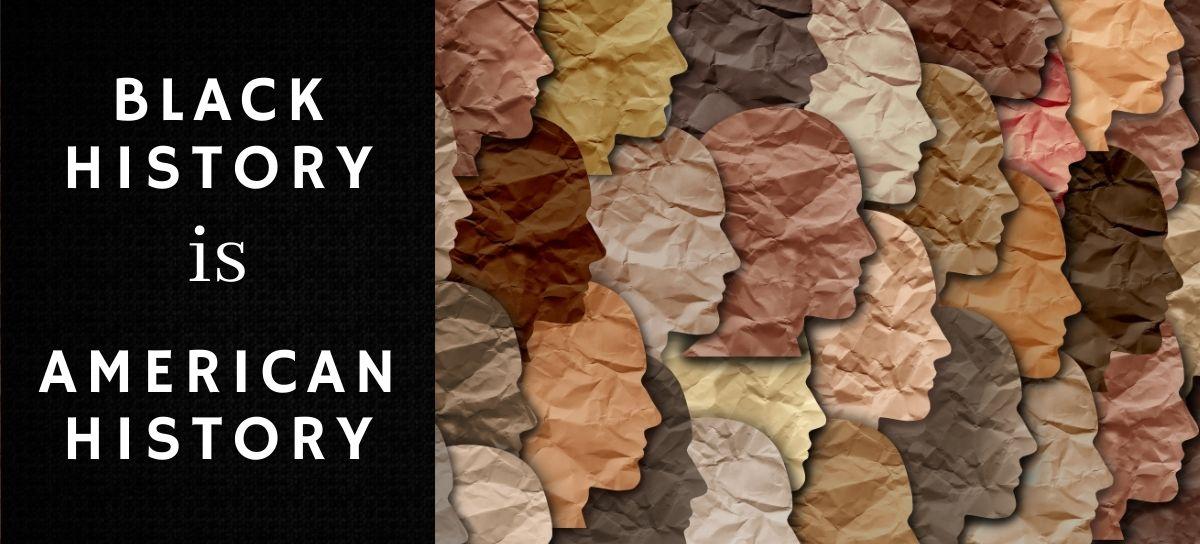
Black History is American History
An introductory article for a new series focused on social issues.
In the last few years, Critical Race Theory (CRT) has quickly become a divided topic of conversation forced upon education systems across the nation. Like most politized topics in the United States, a lot of anger, fear, and opinions on CRT have spread due to disinformation. Couple this with our unwillingness to have meaningful conversations with one another about racial justice and equity work and the divisiveness of this topic is understandable.
What is Critical Race Theory?
Briefly, the foundation of critical race theory stems from legal academia.
Critical race theory is a way of thinking about America’s history through the lens of racism. Scholars developed it during the 1970s and 1980s in response to what they viewed as a lack of racial progress following the civil rights legislation of the 1960s… It centers on the idea that racism is systemic in the nation’s institutions and that they function to maintain the dominance of white people in society (Anderson).
Critical race theory is a theory, meant to encourage critical thinking and discourse. This theory is used as a frame to study laws, policies, and institutions.
Does Critical Race Theory belong in school?
Unless you’re in a legal studies class, no.
Educators and others say critical race theory, a decades-old legal framework that says racism is systemic in the United States, isn’t taught in schools, and they’ve argued that attempts to ban it in Georgia and elsewhere are simply intended to get rid of diversity initiatives in teaching and restrict lessons that explore America’s darker history (Heim and Rozsa).
Though school administrators and educators re-affirm that CRT is not being taught in schools, it's worth asking ourselves what are the fundamental concepts of racism and the level of critical thinking skills required. Understanding the distinction of what CRT is and is not then prompts healthy discourse on why it matters.
So why is CRT such a hot topic? Racism.
Racism was woven into the founding of this country. It can be argued that the United States, its institutions, and its systems, have never properly addressed its horrific history, of racism, genocide, enslavement, and other violations against human rights. Regardless of curriculum standards, policies implemented, or laws passed, Black history is American History. Trying to sanitize American history is a disservice to our Black children and White children (Bennett and Cuevas). It is critical that America's history isn't censored or erased so that our nation and communities can heal as we move forward. And as we move forward, we must do so with an equitable lens, towards an anti-racist society.
Let's focus our attention on the real issues affecting our education systems.
So many states, legislatures, and school boards have co-opted this concern over CRT being taught in the classroom while oftentimes disregarding the goodwill of the teachers, students, and responsibilities of our education systems. States have moved forward to regulate controversial subjects and how it is taught in the classroom such as threatening to censor American history by erasing the true history of racism. Education Week maintains a map of states that have introduced bills or taken other forms of actions to restrict teaching CRT or limit how educators discuss racism and sexism in their classrooms, reporting 42 states have taken action to date (Schwartz). This hyper-focus on CRT has left many other concerns in our education system in disarray. In Oregon, superintendents are being fired without cause for following requirements set by the state and for protecting the wellbeing of their community, specifically their students and staff (Miller). School boards have passed policies that directly go against our Constitutional Rights of free speech and protections against discrimination (Parfitt). The equity work many schools have pushed for has been ignorantly connected to CRT creating a hostile environment for educators and children (Heim and Rozsa).
How to be better leaders to ensure our student’s success as we move forward.
Support our educators.
Invest in the resources and training they need, so they can have the tools to best fulfill their work. COVID-19 has highlighted how limited staff capacity, training, and resources diminish the quality of education our children receive. Our educators and students have been resilient considering how much change and demand have been placed on them. Let's come together to invest more into our K-12 systems.
Advance equity policies and guidelines.
Implement and actively practice equity work within our education systems, and across all institutions. Racism and discrimination function in complex ways across all our institutions, and we must find the best methods to address racism so we can become an equitable, anti-racist society.
Be better at having discussions.
Our young children are looking for guidance, so we must be better role models when it comes to growing as a community, and that means having respectful and challenging discussions about our education systems and racism.
Early Learning Multnomah Hub and Multnomah Education Initiative are committed to advocating for education, equity, racial justice, and community activism. We will continue to address social and community issues through a continuous series of articles.
Sources
Anderson, Bryan. “Explainer: So Much Buzz, but What Is Critical Race Theory?” AP NEWS, Associated Press, 24 June 2021, https://apnews.com/article/what-is-critical-race-theory-08f5d0a0489c7d6eab7d9a238365d2c1.
Bennett, Geoff, and Karina Cuevas. “How the Political Debate on Teaching Race in Schools Is Impacting Students and Educators.” PBS, Public Broadcasting Service, 16 Feb. 2022, https://www.pbs.org/newshour/show/how-the-political-debate-on-teaching-race-in-schools-is-impacting-students-and-educators.
Heim, Joe, and Lori Rozsa. “African Americans Say the Teaching of Black History Is under Threat.” The Washington Post, WP Company, 26 Feb. 2022, https://www.washingtonpost.com/education/2022/02/23/schools-black-history-month-crt/.
Miller, Elizabeth. “Oregon Bill Would Offer Protection to Superintendents Facing 'without Cause' Termination from School Boards.” Opb, OPB, 3 Feb. 2022, https://www.opb.org/article/2022/02/03/oregon-legislature-bills-school-superintendent-firings-without-cause-termination/.
Parfitt, Jamie. “Oregon Senate Passes Bill Shielding School Superintendents from Being Ousted on Political Grounds.” NewsWatch 12 KDRV, 10 Feb. 2022, https://www.kdrv.com/news/schoolwatch/oregon-senate-passes-bill-shielding-school-superintendents-from-being-ousted-on-political-grounds/article_9989d79c-8ac7-11ec-a046-63b28c678593.html.
Schwartz, Sarah. “Map: Where Critical Race Theory Is Under Attack.” Education Week, Education Week, 11 June 2021, https://www.edweek.org/policy-politics/map-where-critical-race-theory-is-under-attack/2021/06.
